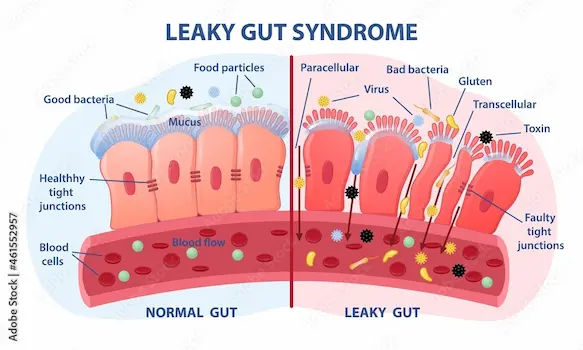Ultimate Guide to Winter Wellness: Stay Healthy All Season
Discover the ultimate winter wellness guide with tips to boost immunity, prevent colds and flu, care for skin, nourish your body, stay active, and protect mental health. Stay healthy and happy all season long.

Written by Dr. J T Hema Pratima
Reviewed by Dr. Rohinipriyanka Pondugula MBBS
Last updated on 13th Jan, 2026

Winter paints the world in a beautiful, frosty palette, but it also brings with it a unique set of health challenges. From the sniffles and sneezes of cold and flu season to dry, itchy skin and the winter blues, our well-being can take a hit when the temperature drops. But what if you could not just survive, but truly thrive during these colder months? This comprehensive guide is your go-to resource for proactive winter health strategies. We'll dive deep into nurturing your immunity, caring for your skin, nourishing your body, protecting your mental well-being, and staying active. Let’s embrace the season with vitality and resilience, ensuring you stay happy and healthy from the first frost to the first spring bloom.
Fortifying Your Body's Defenses: The Immunity Shield
Your immune system is your frontline defense against the myriad of viruses that circulate more freely in winter. Strengthening it is your first and most crucial step toward seasonal wellness.
Nutrition for a Robust Immune System
A nutrient-dense diet is the cornerstone of a strong immune response. Focus on incorporating a rainbow of fruits and vegetables to ensure a wide intake of vitamins, minerals, and antioxidants. Vitamin C, found in citrus fruits, bell peppers, and broccoli, is famous for its immune-boosting properties. Zinc, present in legumes, nuts, seeds, and lean meats, is vital for immune cell development and communication.
Powerhouse Winter Superfoods
Embrace foods that are naturally in season. Root vegetables like sweet potatoes and carrots are packed with beta-carotene. Dark leafy greens such as kale and spinach are rich in vitamins A, C, and K. Don’t forget garlic and ginger, which have natural antimicrobial and anti-inflammatory properties, perfect for adding a health kick to soups and stews.
The Importance of Hydration (Even When It's Cold)
We often forget to drink water when we're not hot and sweaty. However, the dry winter air, both outdoors and from indoor heating, can lead to dehydration, which thickens mucus and makes you more susceptible to germs. Aim for 8-10 glasses of fluids daily. Herbal teas, warm water with lemon, and broths are excellent hydrating and warming options.
Sleep: The Underrated Immune Booster
During sleep, your body produces and releases proteins called cytokines, which target infection and inflammation. Skimping on sleep can reduce the production of these protective cytokines. Aim for 7-9 hours of quality sleep per night to give your immune system the best chance to fight off winter illnesses.
Navigating Cold and Flu Season Like a Pro
Even with the best defenses, sometimes germs break through. Knowing how to prevent and identify illness is key.
Prevention is Better Than Cure: Hygiene Practices
The simplest actions are often the most effective. Wash your hands frequently with soap and water for at least 20 seconds. Avoid touching your face, especially your eyes, nose, and mouth. Carry a alcohol-based hand sanitizer for when you're on the go. If you haven't already, consider getting your annual flu shot and staying up-to-date with COVID-19 vaccinations—they significantly reduce the risk of severe illness.
Differentiating Between a Cold, the Flu, and COVID-19
Symptoms can overlap, making it tricky to self-diagnose. Generally, a common cold comes on gradually with a runny nose and sneezing. The flu (influenza) often hits suddenly with a high fever, body aches, and significant fatigue. COVID-19 symptoms vary widely but often include loss of taste or smell. If you develop a high fever, have difficulty breathing, or your symptoms persist beyond two weeks, consult a doctor online with Apollo24|7 for further evaluation and guidance.
Skin and Lip Care in the harsh winter weather
Cold air holds less moisture, and indoor heating systems create a dry environment, leading to parched skin.
Combating Dry Skin and Eczema Flare-ups
Switch to a gentle, fragrance-free cleanser and a richer, oil-based moisturizer. Applying moisturizer immediately after a shower helps lock in water. For those with eczema, winter skin care is non-negotiable. Keep showers short and lukewarm, not hot. Using a humidifier in your bedroom can add moisture to the air and prevent your skin from drying out overnight.
Protecting Your Lips and Hands
Your lips lack oil glands and are especially vulnerable. Use a petrolatum-based lip balm throughout the day. Don’t lick your lips—it dries them out more. Your hands are also frequently washed and exposed. Keep a tube of hand cream by every sink and use it liberally. Wear gloves when going outside to protect them from the cold wind.
Fueling for the Cold: Winter Nutrition and Diet
Our dietary instincts often shift towards hearty, warming foods in winter—listen to them, but do so wisely.
Embracing Seasonal and Comforting Foods
Soups, stews, and dals are fantastic winter health meals. They are hydrating, can be packed with vegetables and legumes, and are deeply nourishing. Oatmeal for breakfast provides sustained energy and warmth. Incorporate healthy fats from avocados, nuts, and olive oil, which help maintain skin moisture and provide energy.
Managing Winter Weight Gain Mindfully
It's common to gain a few pounds in winter due to less activity and richer foods. Be mindful but not restrictive. Practice portion control with holiday treats, and ensure your comfort foods are nutrient-dense. Staying active, as we'll discuss next, is the perfect complement to a balanced healthy winter diet.
Staying Active Indoors and Outdoors
Physical activity boosts circulation, improves mood, and supports immune function.
Safe Winter Workout Practices
If you enjoy outdoor activities like running or hiking, dress in layers to trap heat and protect against wind chill. Wear appropriate footwear to prevent slips on ice. When it's too frigid outside, bring your workout indoors. Online fitness classes, yoga, home bodyweight exercises, or even dancing to your favorite music are great ways to get your heart rate up. The key is to find something you enjoy so you'll stick with it.
Safeguarding Your Mental and Emotional Health
The shorter days and lack of sunlight can significantly impact our mood and energy levels.
Understanding and Managing Seasonal Affective Disorder (SAD)
Seasonal Affective Disorder is a type of depression that's related to changes in seasons. Symptoms include low energy, oversleeping, loss of interest in activities, and weight gain. It's more than just the "winter blues." If you experience these symptoms, it's important to take them seriously.
The Power of Light and Social Connection
Maximize your exposure to natural daylight. Take a short walk during your lunch break. Sit near a window when possible. For many, light therapy boxes that mimic natural sunlight can be highly effective. Furthermore, combat social hibernation. Make a conscious effort to stay connected with friends and family, even if it's through a video call. Social interaction is a powerful mood booster.
Special Considerations for Vulnerable Groups
Infants, the elderly, and those with chronic respiratory or cardiovascular conditions are more susceptible to the effects of extreme cold. It's crucial for these groups to stay warm, avoid prolonged exposure, and ensure they are up-to-date on all vaccinations. Apollo24|7 offers convenient home collection for tests like vitamin D or HbA1c, making it easier for vulnerable individuals to monitor their health without braving the cold.
Conclusion
Winter doesn't have to be a season of sickness and low mood. By adopting a proactive and holistic approach to your winter health, you can build a fortress of well-being that allows you to enjoy the unique beauty and coziness this time of year has to offer. From nourishing your body with the right foods and protecting your skin to prioritizing mental wellness and staying active, each small step adds up to a significant impact. Listen to your body's needs, be kind to yourself, and don't hesitate to seek professional advice when needed. Here’s to a healthy, happy, and vibrant winter season!
Frequently Asked Questions (FAQs)
Q1. What is the best vitamin to take in winter?
A.While a balanced diet is best, Vitamin D is the most common deficiency in winter due to reduced sunlight exposure. It's crucial for immune function and bone health. It's best to get your levels checked before starting a supplement. Apollo24|7 offers convenient home collection for tests like vitamin D, making it easy to check your status.
Q2. How can I prevent getting sick after being in the cold?
A.Being cold itself doesn't cause illness; viruses do. However, prolonged exposure to cold can stress your body and potentially weaken your immune response. The best prevention is to dress warmly, practice good hand hygiene, and maintain a strong immune system through diet, sleep, and hydration.
Q3. Why is my skin so itchy in winter?
A.Winter itch is caused by dry air (low humidity) stripping moisture from your skin. Combat it by taking shorter, lukewarm showers, using a gentle soap, and applying a thick, fragrance-free moisturizer immediately afterward while your skin is still damp.
Q4. What are the first signs of Seasonal Affective Disorder (SAD)?
A.Early signs often include a noticeable change in mood and energy levels as the seasons shift, specifically feeling sad, irritable, or lethargic; losing interest in activities you once enjoyed; sleeping too much; and craving carbohydrates, leading to weight gain.
Q5. Is it okay to exercise outdoors in very cold weather?
A.Yes, but with precautions. Dress in layers that you can remove as you warm up. Protect your extremities (hands, feet, ears, and nose). Warm up thoroughly indoors first, and be extremely cautious of icy surfaces to prevent falls. Listen to your body and head inside if you feel dizzy, short of breath, or experience pain.
Consult a Specialist for the best advice
Consult a Specialist for the best advice

Dr. Mainak Baksi
General Practitioner
13 Years • MBBS , MD (MPH)
Howrah
Mainak Baksi Clinic, Howrah
(50+ Patients)

Dr. Rajib Ghose
General Physician/ Internal Medicine Specialist
25 Years • MBBS
East Midnapore
VIVEKANANDA SEBA SADAN, East Midnapore

Dr. Ashita Kuruvilla
General Practitioner
7 Years • MBBS
Kolkata
KVC CLINIC, Kolkata

Dr Aswathy D C
General Practitioner
6 Years • MBBS
Bangalore
Apollo Clinic Bellandur, Bangalore

Dr. Rupam Chowdhury
Orthopaedician
10 Years • MBBS, DNB (Ortho.)
Kolkata
MCR SUPER SPECIALITY POLY CLINIC & PATHOLOGY, Kolkata




